YANGON— Four years ago today, Myanmar lost one of its leading reformers U Ko Ni – a longtime critic of the military’s role in politics—in a fatal shooting. The truth about his murder has still not come out.
The respected Muslim lawyer was assassinated in a plot involving ex-military officers in daylight outside Yangon International Airport on Jan. 29, 2017, as he returned from an overseas trip. U Ko Ni was the National League for Democracy’s (NLD) legal adviser and an aide to Daw Aung San Suu Kyi.
U Ko Ni was credited with creating the position of state counselor for Daw Aung San Suu Kyi after the party’s landslide victory in the 2015 general election. The position made Daw Aung San Suu Kyi, who is constitutionally barred from the presidency, the de-facto leader of the country but infuriated the military.
The hired assassin’s bullet that took the life of the 63-year-old in the first year of the NLD government exposed the persistence of dark forces opposing the country’s democratic transition and the dangers faced by reformers.
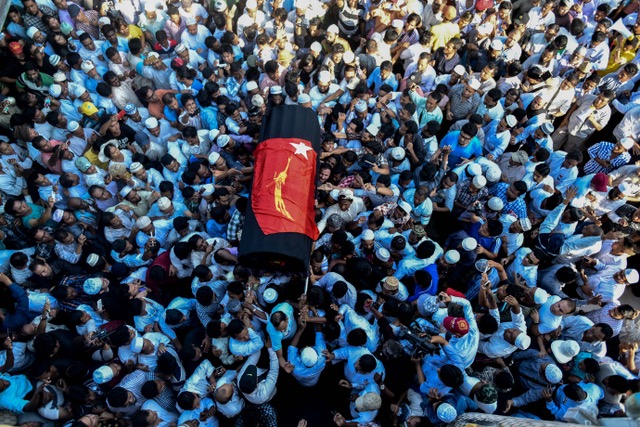
Myanmar’s citizens, who had endured decades of hardship and sacrifice, were in a hopeful mood after the civilian government took office. Ahead of his murder, U Ko Ni felt the country was at a turning point.
The lawyer’s son, Ko Thant Zin Oo, told The Irrawaddy: “I remember how he was active and happy after the [2015] election.”
Before his murder, the lawyer – who was well known for finding loopholes in the military-drafted 2008 Constitution – was advising the NLD on charter reform.
No motive for the murder has ever been satisfactorily provided. According to the then military-appointed minister for home affairs, the assassins were motivated by “extreme nationalism” and “personal grudges” and were “resentful” of U Ko Ni’s political activities. The minister’s remarks were widely perceived as an attempt to disguise the real motives. Many suspect the involvement of more powerful figures, eager to stamp out the lawyer’s reforms.
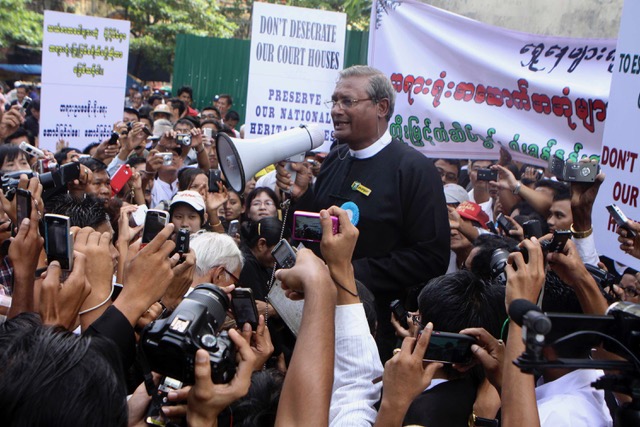
Four men were convicted for U Ko Ni’s murder. The gunman Kyi Lin – who also killed taxi driver U Ne Win as he tried to apprehend the assassin – and a conspirator, former lieutenant Aung Win Zaw, were given the death penalty. An accomplice, Zeya Phyo, a former military intelligence captain, was jailed for five years, and Aung Win Zaw, received a three-year sentence.
Former lieutenant colonel Aung Win Khaing, who is suspected of masterminding the plot, is still at large after he mysteriously disappeared in Naypyitaw, with its heavy security presence. The authorities say they have no leads about his location.
U Nay La, the prosecution lawyer in U Ko Ni’s case who was also a close friend of the victim, said no motive was established during the trial and he does not expect to find one until Aung Win Khaing is arrested.
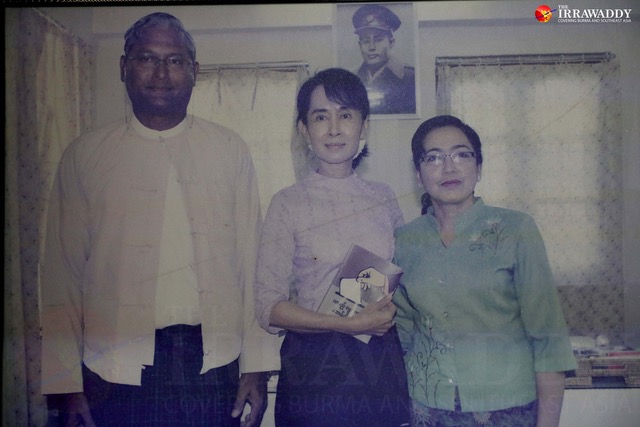
“I believe the truth will come out only after he is arrested. I am sad the police have not made sufficient efforts to capture the fugitive,” U Nay La said on Friday.
The two death sentences were commuted to life in jail in last year’s presidential amnesty, a process that dismayed U Nay La. Those receiving death sentences rarely fear execution, he said.
Ko Thant Zin Oo said the family’s stance has not changed since the verdict was announced in February 2019.
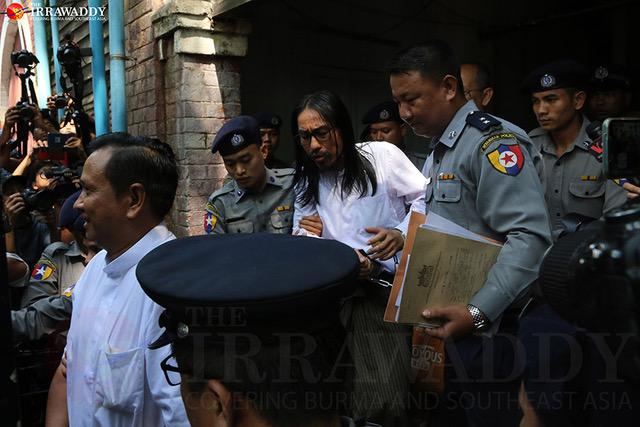
At the time the family said: “The court decision could set a precedent. It is hoped the verdict will deter other would-be perpetrators from such heinous acts against people holding different values and principles.”
Ko Thant Zin Oo said any further action will be taken in consultation with lawyers.
U Ko Ni’s colleague U Khin Maung Htay, one of the lawyers who represented the family during the murder trial, said the case will not be closed until Aung Win Khaing is captured.
“The court has declared him a fugitive. The police have the main responsibility to bring him to court and to identify if anyone was behind the plot,” he said.
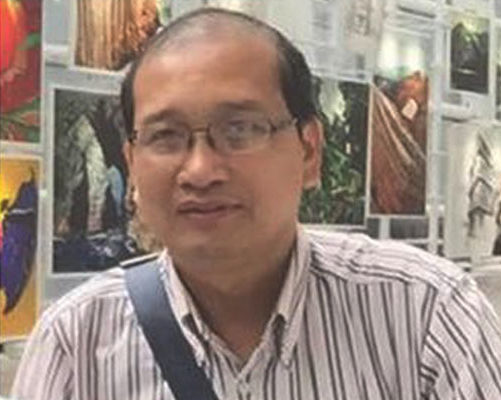
U Khin Maung Htay said the murder was a sacrifice in the process towards democratization. “We must not let his death be in vain, we all need to keep moving toward democracy and make progress in the rule of law,” he said.
For his beloved country, what would U Ko Ni want to see if he was still alive?
“I am sure he would want to see the rule of law strengthened and constitutional change. They were two things he always talked about,” his son said.
You may also like these stories:
Tension Grows Following Military’s Coup Talk
Biden Administration Should Tread Carefully on Myanmar’s Rights Issues: Observers
The Inside Story of Thailand and Myanmar’s Troubled Dawei Mega-Project

















